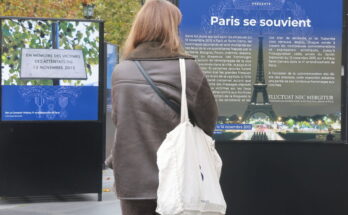By Jean-Marc Foucher, Mayor of Villeconin and president of the commune ENTRE JUINE ET RENARDE
It is difficult to imagine that some of the most basic resources are under such pressure that they could become the cause of social and even geopolitical conflict. Whether on an international or local scale, there is a “time bomb” that is at risk of exploding: water. Yes, access to water could become one of the biggest sources of inequality in France in the coming decades. In most of our regions and departments, water services today are faced with a dilemma: how to invest to secure the future while keeping bills affordable for our citizens?
Let’s stop lying. Providing drinking water requires large costs. Maintaining maximum water quality must be protected from pollution. More than that, it is climate change that requires us to ensure the common good. Investment is important, but this risks burdening people’s budgets and household finances.
Added to these financial pressures is the existence of inequality: namely regional divisions. Large cities benefit from economies of scale, while rural or suburban areas, where there is less density, must spread costs across a more limited number of users. The impact is very real injustice. In the future, in certain cities, water risks becoming more expensive than in other cities, to the point of excluding the most affordable cities. Things that are important and must be guaranteed to everyone can turn into factors for gaps and ranking decline.
Water, democracy and social issues
Access to water is not only a technical or budgetary issue, but also a matter of dignity, social justice and republican equality. Ensuring water quality that is accessible to everyone is a democratic requirement.
Yes, we must invest heavily to secure our networks and prepare for the future. But no, we cannot ask households, already facing inflation and rising costs of living, to bear this burden alone.
If no action is taken, the consequences will be serious. In our region, already characterized by a dearth of public services, rising water prices will only reinforce feelings of abandonment. Many of our citizens already feel forgotten by the Republic. What happens if there is an uncontrolled increase in water prices? This will only increase distrust. Water, apart from social issues, could become a new reason for division.
Solutions exist
Let’s be clear that this perspective is undesirable. It is our collective responsibility to build a water financing and management model that combines efficiency, equality and solidarity. To achieve this, we propose ambitious national reforms, structured around several points:
- Reform of water costs and financingto better distribute efforts and not leave rural towns alone to face a disproportionate burden.
- Fairer pricingwhich integrates not only consumption criteria, but also social, family and territorial criteria. Paying for water should not be as burdensome to large, modest families as it is to wealthy families.
- Strengthening interregional solidarityso that the economies of scale of large cities can provide benefits, through redistribution, to small communities.
- Strengthen support from local authoritiesto enable them to invest in a modern, sustainable network without overburdening their users.
These proposals are not simple technical adjustments. This is a response to demands for justice and reflects the certainty that water is not a commercial good like other goods, but is a fundamental right.
A social choice
Water issues force us to debate and decide what we want.
Should we wait until divisions deepen and anger rises? Or do we prefer to anticipate, and implement things that tend to lead to justice and sustainability?
Water is the public service of the 21st century. Just like schools, electricity or health in the past, education must remain accessible, quality and available for future generations. It all depends on the choices we make today.
Water should not be a luxury.


